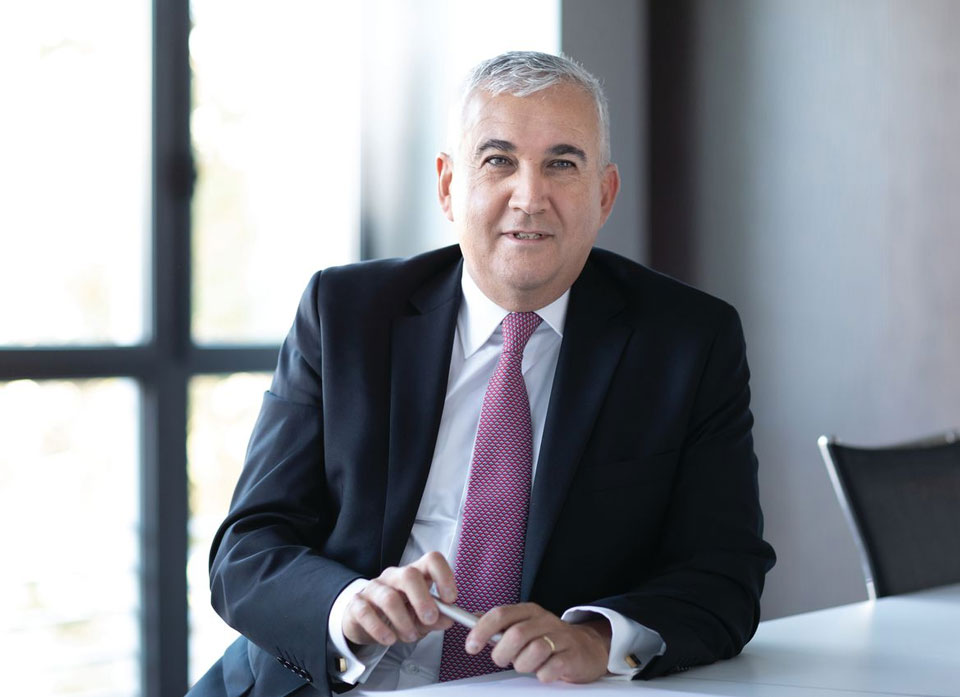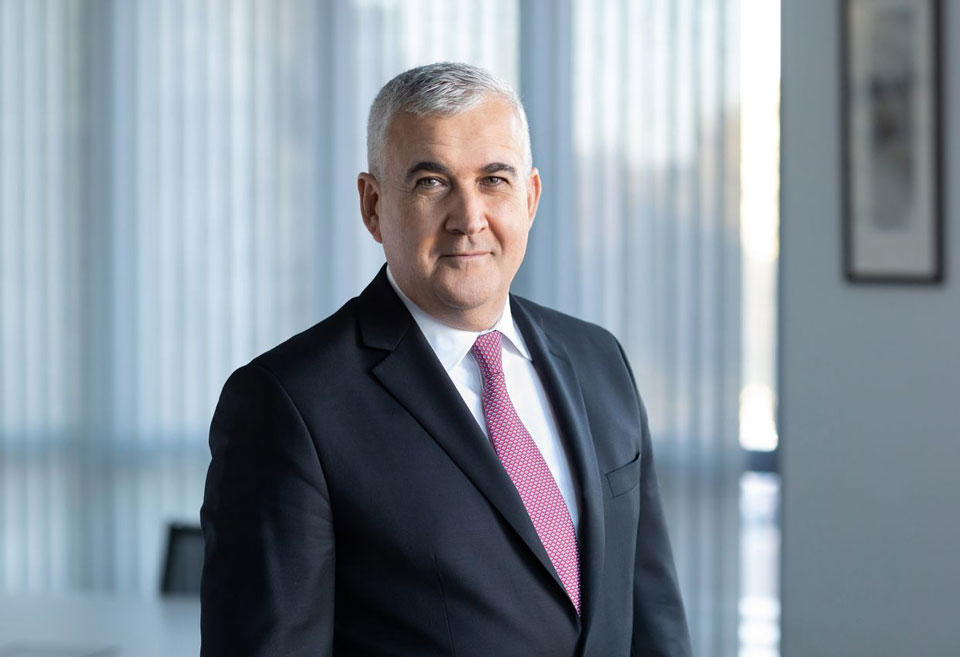Interview with Ignacio Garcia-Alves, Chairman and Chief Executive Officer of Arthur D. Little

During the 1990s, Arthur D. Little endured a difficult period in its evolution. Although client work continued successfully, the firm failed to grow as fast as its competitors and, following a financial crisis, was eventually acquired by French technology firm Altran in 2002. Under Altran’s ownership the firm grew slowly, but it was only after a management buyout (MBO) on December 30, 2011 that Arthur D. Little was truly reborn as a successful partnership with a thriving and rapidly expanding business.
Ignacio Garcia-Alves, the managing director of the Benelux office at the time, led the MBO and was immediately elected as the Chairman and CEO of the new partnership, a position he has held ever since. In this interview, Ignacio shares his insights on how the firm was transformed and the lessons learned along the way.
Going back to the 1990s, what would you say were the underlying reasons ADL lost ground, culminating in the acquisition by Altran?
We operated a single business model across the firm, yet our business strategy consulting business needed a very different model to that of our traditional technology and product development business. And our governance structure was very centralized and hierarchical. So internal tensions took up a lot of the energy that would have been better focused externally on growth, at a time when the global strategy consulting industry was developing rapidly.
How did the idea of an MBO come about, and how did you turn the dream into reality?
Altran was a supportive shareholder and tried hard to make the most of the synergies between ADL and the rest of the group. But Altran’s core business was very different, and eventually it became clear that a new way forward had to be found. This is when, together with a handful of other senior colleagues, we started to think about how we could take the firm back to being a private partnership – realigning shareholding, the business model and governance.
We started by creating a 20-page document on the MBO proposal and engaged in discussions with Altran. Eventually, we were accepted by Altran as one of the bidders for ownership of the firm, alongside a number of external bidders. We organized an event in our founding city of Boston, where the MBO option was presented to the directors alongside the other external bids. In a key voting session, there was overwhelming support for the MBO, and we proceeded on two fronts: negotiating the detailed deal with Altran and setting up the “new ADL” from the ground up.
The “proof of the pudding” came when the directors of the firm made their personal investments as part of the MBO. In fact, we achieved the MBO without any external financing.
What important founding principles did the “new ADL” adopt to set itself up for success?
First, we set ourselves up as a global operation from the start, with a single shareholding structure. This was important to be able to add value to our global clients, and for employees who wanted to be part of a global firm. Second, to balance this, we set up business controls that allowed for significant local initiative within the global model. Third, we introduced four behaviors that we required from partners to ensure entrepreneurship and a healthy and balanced culture: leadership and followership, and entrepreneurship and fellowship, essentially two matched pairs. Fourth, we made it clear that, although we would embrace our heritage, the “new ADL” would be completely different to the “old ADL”, so everything was re-engineered to look forwards, not backwards, cutting ties with the things that had hindered us previously.
Fifth, we adopted a principle that I call “respect and pride”. We wanted to show that we respected all our people through our actions, and also recognized that we needed to earn their respect for us as leaders. And sixth, we adopted the principle of learning continuously: to be allowed to make mistakes, but only once, and then to learn faster than our competitors.
In the 10 years since the MBO, ADL has been a remarkable success story. How did you go about guiding the firm along this journey?
The first stage, Boost, was between 2012 and 2014, and it focused on setting the foundation for the firm, achieving financial stability, recognizing and dealing with problem areas, and implementing a consistent high-performance culture across the firm. We also defined our value proposition: “To help our clients Anticipate, Innovate and Transform.”
In the second stage, Breakthrough, we focused on how to turn our consultants into entrepreneurs. Consultants are not usually big risk-takers, but we wanted our consultants to take more pleasure in tackling big stretch goals and tough challenges, and to really believe that they could achieve them.
In the third stage, Blossom, which we started in 2017, we have been focusing on the future: creating a disruptive consulting firm that operates ahead of the curve to meet the changing needs of our CEO clients. A key aspect of this is to understand how the world is changing and help our clients become ambidextrous, which means to simultaneously innovate to build the future, as well as manage performance and efficiency. This requires innovation in critical areas such as sustainability, convergence and digital.
Looking ahead, what are some of ADL’s new priorities to build on the growth and success of the firm over the last decade?
We are further developing our next-generation offerings to ensure we stay leading edge – this is a continuous process. Another important aspect is what we call Open Consulting, which is at the heart of our philosophy and an area where we have a real difference versus our competitors. We have become very strong in developing and managing our partner ecosystems to bring the best expertise to bear, including full-scale new business creation for our clients when they need it. Artificial intelligence and machine learning are also key parts of the Open Consulting offering – in fact, we were saying recently that if Arthur Dehon Little were starting out today, he would probably be a data scientist!
We also firmly believe that the human side of consulting is becoming, if anything, more important in today’s uncertain business environment. We need to be empathetic, to get inside the head of our clients – see what they see and feel what they feel.
ADL has recently adopted a new brand identity, which, in particular, emphasizes the “D” in the company’s name as representing “The Difference” that ADL makes to its clients. Can you talk about the thinking that inspired this redesign?
As we enter the next phase of ADL’s journey, it is really important for us to refresh our visual identity and the way in which we talk about the company. We want our clients to know that ADL isn’t like other consultancies! We believe that a new, more personal approach is needed, where solutions are tailored to clients’ specific needs, rather than pre-packaged. Our Open Consulting model is at the heart of this approach, because it allows us to offer our clients the best possible guidance and insight, while keeping the company at the cutting edge of innovation. At the same time, we are committed to working side-by-side with our clients, from the senior level down, and becoming an integral part of their team.
This is “The Difference” we bring to both our clients and the consulting industry. Our new branding reaffirms ADL’s history of pushing at the boundaries of innovation, linking experts, technology and strategy to solve the most challenging problems, while also reflecting the company’s entrepreneurial, future-facing spirit.
What would you say are some of the most important lessons you have learned along the journey since the MBO?
One important lesson is always to maintain a good equilibrium, for example, between being global and being entrepreneurial, and between growing and maintaining your core values. In terms of what we could have done differently, maybe we could have moved even faster on some things. For example, we wanted to have the slider at 50:50 in terms of the balance between global and entrepreneurial, but to start with, we perhaps spent too long emphasizing the entrepreneurial side.
If there’s one lesson I would highlight above all else, it’s that you need to have an ambition that makes you get out of bed every morning, and you need to truly believe in that ambition. When I was trying to make the MBO happen, everyone was telling me it was impossible – investors, competitors, also some friends and colleagues. Many people said I needed a Plan B, but I refused to make one because that would mean I didn’t have full confidence in what we were doing.
Honestly, the famous words of our founder really did help me in those early days: “Who says it can’t be done?” I’ve ended all my internal presentations to partners and shareholders on the state of the firm with these words ever since!
Written by Rick Eagar.
Have you read?
# Best Citizenship and Residency by Investment Programs.
# Richest People in New York and Their Net Worth, 2022.
# The World’s Top 10 CEOs Over 70 Years Old.
# These are the world’s most and least powerful passports, 2022.
# Case Study: LVMH’s Bernard Arnault, Apple’s Tim Cook, and Elon Musk.
Bring the best of the CEOWORLD magazine's global journalism to audiences in the United States and around the world. - Add CEOWORLD magazine to your Google News feed.
Follow CEOWORLD magazine headlines on: Google News, LinkedIn, Twitter, and Facebook.
Copyright 2025 The CEOWORLD magazine. All rights reserved. This material (and any extract from it) must not be copied, redistributed or placed on any website, without CEOWORLD magazine' prior written consent. For media queries, please contact: info@ceoworld.biz









